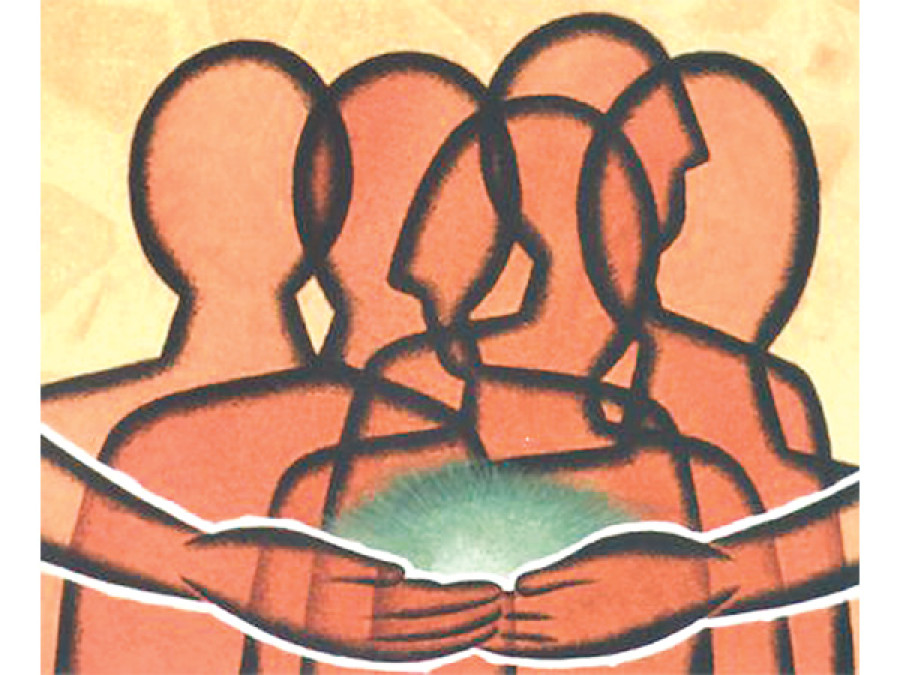Opinion
Matter of trust
Inability of the political parties to rise above party politics has lead citizens to lose faith on the government and its institutions
Meena Bhatta
My grandmother, who is in her late seventies, has a keen interest in politics. However, she did not know anything about politics for most of her life. Having spent all her life in a remote village in Baitadi, she did not even have access to a radio to listen to the news. But after moving to Kathmandu, she has developed a strong taste for politics in Nepal and closely follows the political developments. So much so that she sometimes astounds us with her knack for politics, and her ability to entwine issues to provide her an analysis. Sometime back, I was having a casual conversation with her on the recent political developments in Nepal. We discussed the entire constitution-drafting process and the pace in which the voting on the constitutional bill took place. I wanted to know her views about the new contitution. She was prompt in giving her opinion even before I could finish my question. She said that she was very much skeptical that something good will come out of this constitution and that it does not matter if we have a new constitution as she does not trust the government or the political parties.
My grandmother is not the only one who has qualms over the future of Nepal. Most of the Nepalis face a similar dilemma: to trust the politicians and the political parties or not? Where did the Nepali state fall behind in this process of building trust amongst its people—one of the most important elements of social capital?
Faith factor
Francis Fukuyama points out that “trust is the expectation that arises within a community through regular cooperative behavior based on commonly shared norms.’’ Fukuyama believes that lack of public trust not only creates political problems but also hinders political, social and economic goals. Trust in public and political institutions is important to establish and strengthen democracy, good governance, sustainable development and peace. To garner public trust, the government must govern more transparently, responsibly, and accountably. Likewise, the state institutions ought to regularly and actively engage with the public. Corruption and abuse of power are highly negative impact on public trust in society.
However, given the volatile political developments that have been taking place in Nepal in the last decade, trust deficit is one of the grave problems. Nepal’s transition from one model of governance to another (from unitary monarchical state to a federal republic) has taken place without people actually trusting the political actors. Since 2006, Nepal has been engulfed by a political quagmire.
Nepal has had six constitutions so far, yet, all previous constitutions failed to bring peace and meet the aspirations of the citizens. This is because neither the constitutional ethos were practiced in a true sense nor did political leaders deliver as per their commitment. Instead, multiple constitutional provisions were interpreted as per the interests of political parties which led to constitutional crises. Many blame political parties of never rising above party politics and
as a result. many citizens have lost faith on the government and its institutions.
Time to reflect
So the government’s failure to meet the expectations of its citizens has made them more suspicious of public institutions. This in turn has degraded the social capital which is required to increase economic competence and create opportunities for empowerment and growth. Citizens have become skeptical about the political system. And if this intense distrust festers for a very long time, it may eventually generate a backlash against the political order and result in a search for a more radical, anti-system alternative.
The new constitution has been promulgated after a prolonging transition, but the country is still left with a set of actors that comprises of winners and losers. Therefore, it it is upto the the political parties to gain the trust of the public for this new document to be a success.
Today, there exists a huge trust deficit among different factions in society. Moreover, even after the promulgation of the new constitution the Madhesis, Tharus, pro-Hindu supporters, women, and other minorities still resent the entire constitution making process and feel left out. So in order to regain the trust of these groups and to assure them of their rights, is the greatest challenge that lies ahead for the government.
It is high time the government demonstrated that it can ‘govern the future’, ensure fairness in policy making, address the challenges posed by political lobbying, and make policymaking and implementation process more inclusive through information and consultation with the public. These could be the only way to regain the trust of its citizens and establish political stability.
Bhatta is a faculty meber at the Department of Conflict, Peace and Development Studies, TU




 9.12°C Kathmandu
9.12°C Kathmandu










